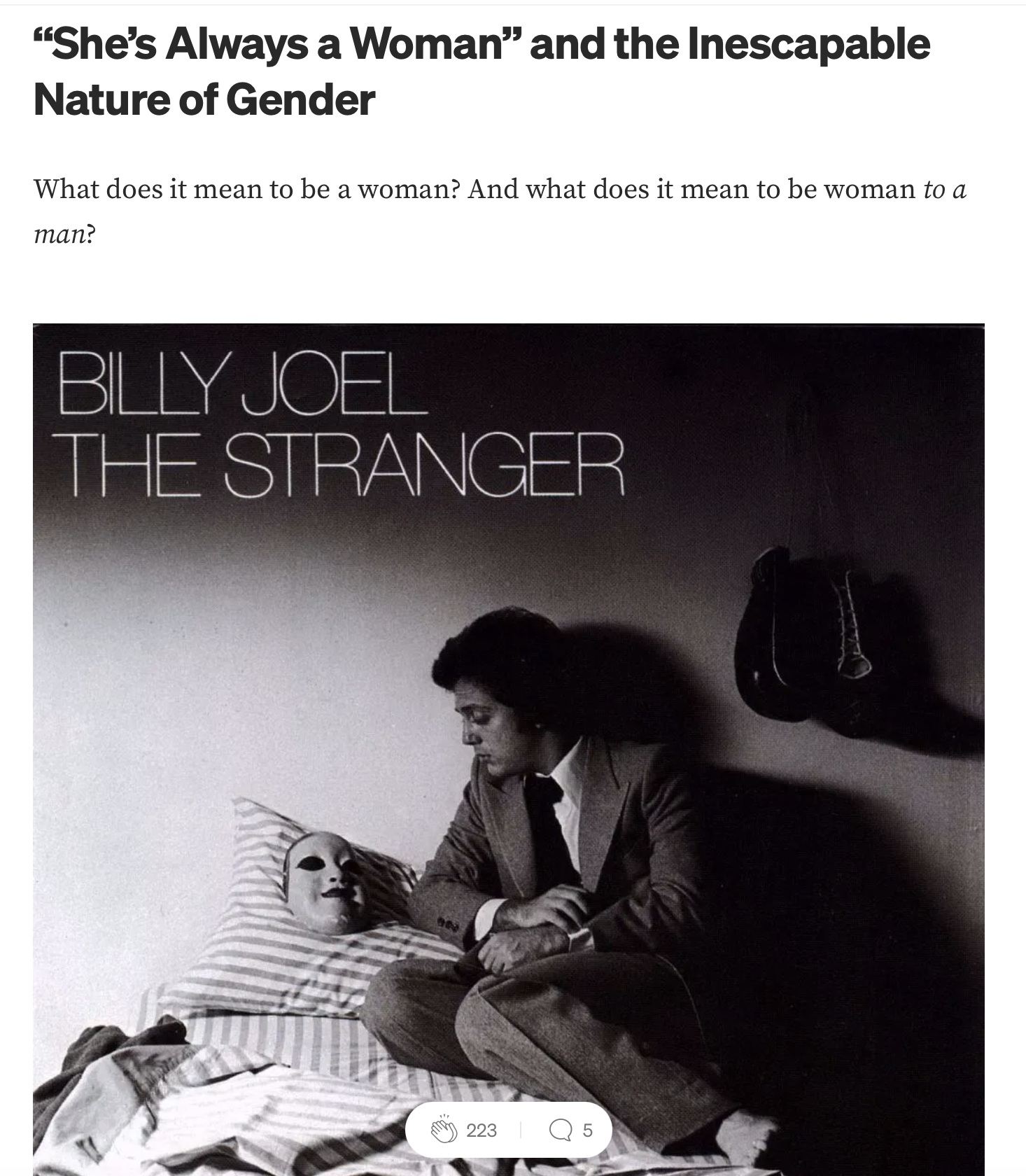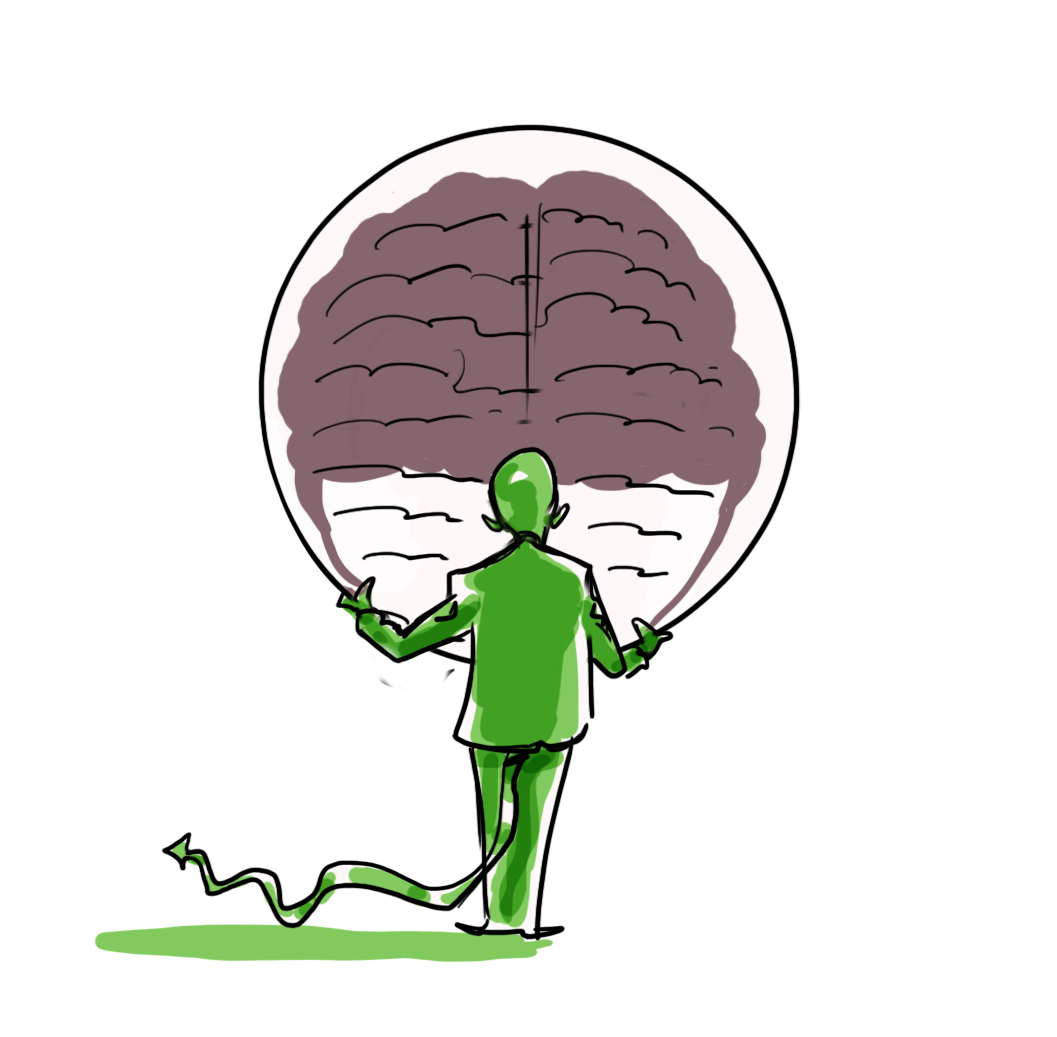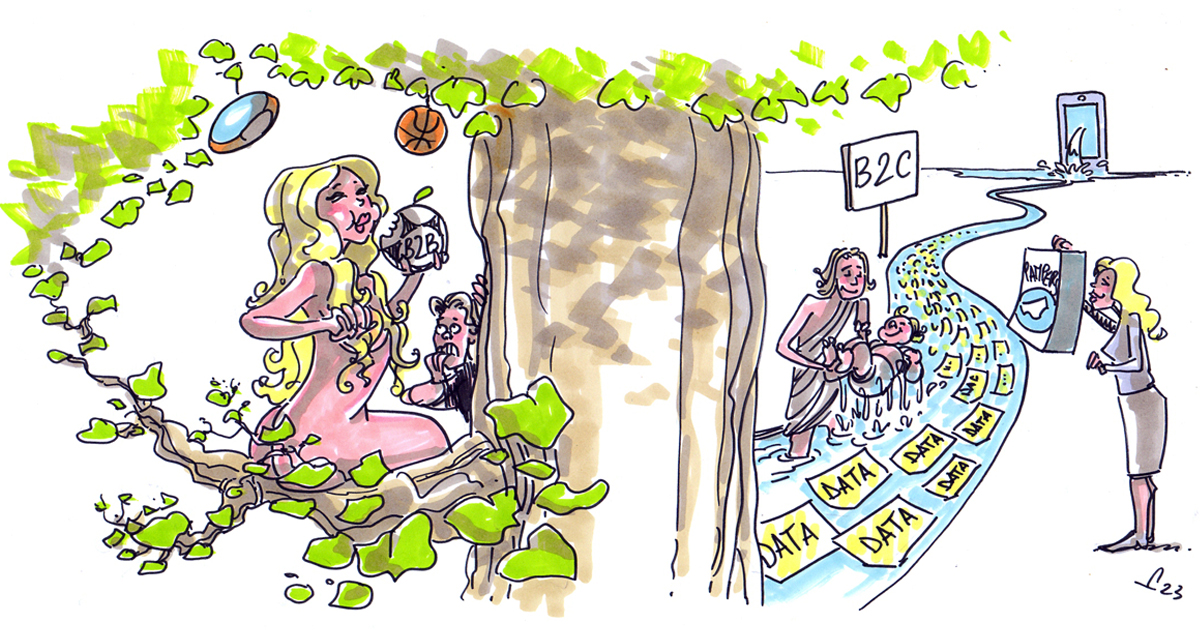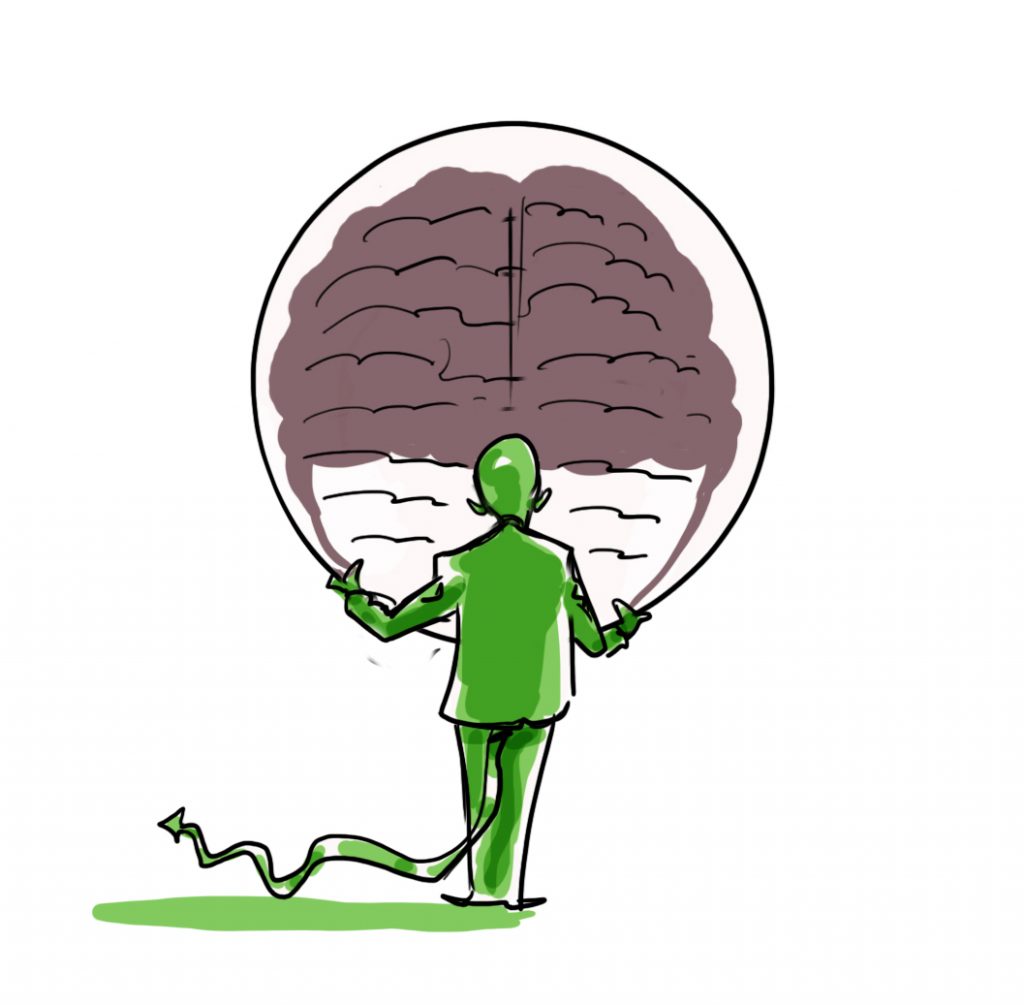… And she’ll promise you more than the garden of Eden
Then she’ll carelessly cut you and laugh while you’re bleeding
But she’ll bring out the best and the worst you can be
Blame it all on yourself, ’cause she’s always a woman to me…
– Billy Joel
Amazingly, in today’s world some people give this song the misogynist label, as anti-women. I’d argue that it’s the complete opposite, and better described as a tribute to the superior machine.

You know, I have always felt that women got a very hard time on the Garden of Eden narrative. When Eve takes the apple, she takes the blame for the “original sin”. He, Adam, comes across as a bit of a simp, just watching; she instead was at least curious. Ha!
Sport suffers from its own original sin.
It is the ultimate community business, and normally when one refers to a “community business”, it almost always describes an activity with a very direct relationship with that community. Sport has the most loyal inter-generational customers/fans, and yet almost always knows next to nothing about them. Even the perennial season ticket holders are, in the main, unknown to sports clubs and franchises. Sport has thus undoubtedly taken its fans, and their loyalty, for granted. Worse than that, in every aspect of their commercial activity, outside of ticketing, they have outsourced their business, sold their community and fans, to others (broadcasters, sponsors, sporting goods manufacturers, and latterly, social media companies).
They have therefore delegated the marketing of their narrative to all these people. How can you tell a really great story, when the chapters are all told by different people? Think of the NFL these days. Games spread across days, in market, out of market, Black Friday games, Thursday, Monday. Traditional broadcasters, streamers, Amazon, Google, Nickelodeon. The monetisation is great… but the story is arguably a confused pulp fiction. Horrible for the fan who, by the way, also needs a zillion different subscriptions. No bueno. No sostenible.
Sport should be, de facto, the ultimate and purest Business To Consumer (B2C) organisation and mentality. The archetypal community B2C business. And yet, it’s not. Sport and its C-Suite instead took the snake’s apple many decades ago, in exchange for a simple life: selling off their games and events to others. Soliciting bids for a certain and safe amount of money up front; a rights bid, a minimum guarantee license, a sponsorship fee. Once received, they required and wanted very little to do with their fans, and consequently have never known anything about them.
Sport has been content to be an underdeveloped Business to Business (B2B) organisation.
It acted like this, to be fair, through little fault of its own. For so many of its participants, it has never even seen itself as a business at all. It was staffed by rules and regs (regulations) guys, paperwork clerks: all pawns in the empire-building of an all-powerful manager like a Lombardi, Shankly, Busby, Ferguson or Clough. Whilst other consumer FMCG industries, from the 1950s onwards, got into the theory and practice of world class strategic marketing, to win market share, sport looked for a “secretary” who could read the FA rulebook. No-one really cared, also because the small monies generated by sport didn’t make it worth the candle. That phrase: Everton FC makes less money that the local supermarket in Goodison.
Maximising B2B money up front is Sport’s Original Sin.
Giles Morgan has made this, and his rich fan data Road to Damascus epiphany, his schtick in recent years. Many sniggered, but he was right. Darwin would have liked Mr Morgan. Adaptability.
Here is the gospel truth. My version of Eden’s wrath “You will crawl on your belly and you will eat dust all the days of your life”.
Whilst sport has thrived handsomely on the back of cheap money and myriad platforms bidding “long” for their rights; for the Blazers, knowing their fans wasn’t important. Sport, through its laziness and hubris has thus poured its finest champagne into the ocean, allowing others to build tremendous businesses on-top. The newspapers, the media companies, the social media companies, shoe manufacturers, etc. In their dash for the minimum guarantee, the nice safe money up front, they have left too much to others.
For sport, a bird in the hand has NOT been worth two in the bush.
It has in reality been a mug’s game.
So, now, as capital becomes scarce and expensive, the monetisation of the brand and fan loyalty is the last life raft. The only out-shot for an industry. B2C is now essential thinking for sport.
In recent decades, especially with the arrival of the internet and the impact of venture capital (VC) thinking, the equity “value” in business and investing has been given to those who DID know their clients. Who DID have a direct relationship. Sport, from that point of view, is now playing catch up and is very exposed. It has little time to sort this out, “crack the code” as Elliot Richardson calls it.
The untapped future for sports is monetizing the lifetime value of their customers, beyond selling tickets and merchandise and maybe a subscription to Sunday Ticket.
– George Pyne (Founder Bruin Capital)
So much of what is going to happen now in sport is around the gear-crunching change from B2B to B2C. For many a problem, for some, like Elliot, an opportunity.
Last week’s Sunday Column wound forward a bearish case for the valuations of sport in a world of rising cost of capital and unwinding leverage. Sorry folks, I apologise; no-one likes a killjoy.
So, for balance, here is Elliot’s bull case. Sport’s Baptism water to cleanse the B2B original sin.
If sport can be considered as a B2C business, it would be re-rated as such, the same way Tech companies are in Silicon Valley: per user!
(Sure, I hear the screams of people saying that the Valley playbook of such valuations is already deflating as we speak, and that may be true, but the principle remains.)
Some call it Unit Economics. I prefer to call it…
… the golden formula for modern business:
LTV > CAC
- CAC= the average cost of acquiring a new customer
- LTV= the total expected revenue that a business will receive from one customer (ARPU) over the course of his/her use of your product/service
So many businesses now work like this. Think betting, the perfect example. All this digital marketing, all these skills, are not about awareness. They are about getting people into your customer funnel, to ultimately convert them into enduring paying clients.
The better you do that (by smart spending, by efficient conversion techniques), the lower your CAC is. Sport has a huge advantage. The fans are already there and they ain’t churning. CAC should be very low.
And here comes the other side. The George Pyne ARPU (average revenue per user) LTV side. Get your fans/customers to spend more with you, capture more of their budget. Their travel, their Christmas gifts, their kit. Sell them more branded goods, offer them more real utility from a serious loyalty program. Use your club content directly with them for value. Get them to spend the whole day at your stadium.
To start doing all of this well, you need the very best fan data. Rich and detailed data. I always love the example of knowing if your fan is married and since when. Pampers would love to know the names of your fans who got married in the last year, coz the stats say that the stork is arriving soon. You get it? Rich data is the gold. Albachiara has been teaching this course for 5 years now. This Pampers example always is a jaw-dropper, and in 2023, it shouldn’t be.
So this Unit Economics theory raises a very crucial point for sport:
on a per user basis, should clubs be valued much higher?
Like this: Number of Users x (Customer Lifetime Value (LTV) – Customer acquisition Cost (CAC))
– Real Madrid has 340m followers on social media and had a value of $3.9bn in 2020 (source KPMG: the European elite)
– As a comparison, Twitter has 436m active users and Musk paid $44bn to acquire the platform.
Think about that fact, would you?
Twitter only has 28% more users/followers than Real Madrid, but its value is 10 times (900%) higher.
To labour the point, TikTok has 2 billion users, double the 1 billion Man United fans. Its valuation is not double, it is 100 times higher!
This right here is the value in “cracking the code” in sports valuations.
And step 1 is blowing away the bullshit vanity metrics still on all those sponsorship decks. Folks, you are kidding no-one. Saying you have millions of fans is not enough, you must be able to monetize that fanbase. Barcelona FC realized that brutally, when Spotify decided to lower the value of the sponsorship deal. They simply discovered that only 1% of the 350M alleged fans were registered with the club.

Whilst you’re at finding out about your fans, realise that they are not homogenous. They now need skilled segmentation.
Yes, kids are different, and NOT transient.
They won’t grow out of it.

Gen Z is being lost.

You have to make them a fan by the time they’re 18, or you’ll lose them forever.
– Tim Ellis, Chief Marketing Officer, NFL
In the face of this upside, why can’t sport just flip to B2C overnight?
In my direct experience, here are the reasons, none of which will come out of an MBA analyst studying the Private equity (PE) model.
1.
Sports operate in internal silos of jealousy and fear. Fiefdoms where, even today, “digital” for example must be put under the “sponsorship” folks.
Sport is politics.
2.
The skillset of the incumbents resists change, for the Upton Sinclair reason: “It is difficult to get a man to understand something, when his salary depends upon his not understanding it.”
Sport currently doesn’t have many strategic marketing skills, so doesn’t want to hear it’s the future, does it?
3.
Innovators Dilemma. Kodak invented the digital cameras but did nothing with it for fear of eating into their existing product and customer base.
Sport today makes good money selling its existing old product to a 50+ market. It is hard for them to see the need and incentive to change. They’ll retire soon.
Sport is facing a dilemma: should it change to invest in the “star” of Gen Z fans, although it might mean losing legacy fans who currently are their cash-cow? This isn’t a new problem. BCG have the copyright on the Matrix.

There is, however, another more important and philosophical reason why sport went B2B; went bird-in-the-hand; went show-me-the-money; and won’t change easily.
You need certainty of budget, when you are planning a team of athletes. You need to know what you can spend.
This point is SO important, that I want to open a brief parenthesis.
Why doesn’t sport start a new relationship with its athletes, its players? Instead of giving them a huge and full fixed salary, whether they are injured or not, whether they are performing well or not, why doesn’t sport give them a smaller base salary, compensated by a bigger upside on results and playing time? Even think of giving them equity options. Ie: treat them like superstar employees in other industries? All this thinking is another article, but it may be forced on sport, as broadcasters look for a more “risk aligned partnership” in their bidding approach going forward.
So B2C is coming for sure, although I am not sure it’s not gonna be sport that drives it. It will be the broadcasters. Very very few sports rights can dictate terms to broadcasters, and get the big bucks upfront. Serie A will be the canary in the coal mine, I suspect, that proves this point.
Grant Williams commenting on the Joe Markowski podcast: “if it is gonna be more risk sharing going forward, we will all find out exactly what everything is worth, sports will be rewarded for performance.”
Exactly.
Last point on all this. I am an investor in sport, through early-stage sport tech.
I seem bearish on the future of the industry?
So how does Albachiara look at all this as an investor?
It’s VC thinking. You are looking for a unicorn. The big one. Not a better mousetrap. I don’t mind investing in a potential unicorn at a slightly inflated valuation (or a valuation about to come down), if I think the upside is truly exponential. In PE, on the contrary, I need to be very careful and precise on the spreadsheets etc. VC on the other hand is making a controlled investment risk into a possible monster, and elite founders. On direction of travel.
I don’t like businesses who are selling B2B in the sports industry alone. It’s just too small a market (TAM). So I like the B2C play (like Move); the B2B2C play (like the Aura “doing not viewing” platform, which is a bet on this drift to B2C fandom); the ability to operate outside the sport verticals (like Zone7 and Horizm).
Zone7’s science and data lake will eventually hit all elite human performance under stress. From surgeons, traders, military, live broadcasters. And play into the whole employee wellness movement. Sport is the highest profile proof of concept of the AI.
Horizm is an investment into media buying/planning disruption, as much as into AI branded content. It is a belief that brands and their agencies will in future look to buy sports AUDIENCES around content, and be less concerned about the traditional sponsorship bundle of logos, boards and media values.
Today, and for the last 10 years, in the cold world of passive index investing, you either like a theme, an industry, or you don’t. I, instead, come from a stock-picking Ben Graham finance culture.
I believe I can still pick winners in a vertical that, overall, I think is going to be challenged.
Listen to our “Are you not entertained?” sports management podcast here.
Let us also recommend our wonderful colleague John WallStreet. His daily newsletter here is essential reading, especially in its coverage of the US market.
To find out what we do in change management, have a look here.
For our C-suite management services, read here.
Here you can know more about our content development work.
Discover our Corporate Learning service.
Get to know more our “Sport Summit Como” yearly sports management event here.
If you are interested in our own story, check us out here.




